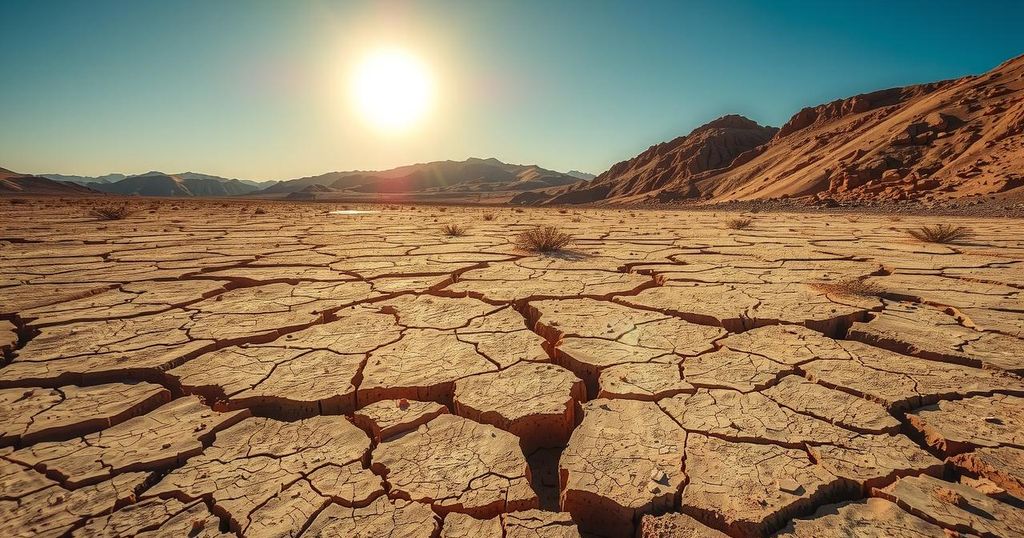Women and girls in South Sudan face heightened risks from a climate-fueled heatwave, exacerbating existing inequalities. A WWA study linked February’s extreme heat to climate change, causing health crises and education disruptions. The study highlighted severe implications for maternal health and necessitated urgent measures to improve conditions and reduce emissions to protect vulnerable populations.
Recent research highlights that women and girls in South Sudan are disproportionately affected by the ongoing climate change crisis, particularly through the extreme heat experienced in the region. A study by the World Weather Attribution (WWA) revealed that last month’s heatwave was intensified by human-induced climate change, increasing temperatures by 2 degrees Celsius and making such an event ten times more likely.
The repercussions of this heatwave were severe, leading to widespread student heat strokes in Juba and the temporary closure of schools. Notably, the country had already faced similar school closures last March when temperatures rose to 45 degrees Celsius, emphasizing the unusual early occurrence of severe heat not typically expected in February.
The structure of schools in South Sudan, predominantly equipped with iron roofs and lacking air conditioning, exacerbates the effects of heat, resulting in unbearable classroom conditions. This ongoing heat is expected to continue throughout March, further impacting educational systems and, consequently, female students’ access to education during school closures.
The adverse impact of extreme temperatures is felt more acutely by women and girls due to entrenched gender roles and responsibilities, illustrating the exacerbation of gender inequality in times of crisis. The researchers emphasize that women often experience increased exposure to extreme heat due to their essential roles in household chores and caregiving, which limits their ability to escape hazardous conditions.
Climate scientist Kiswendsida Guigma suggested potential strategies to mitigate the impacts of high temperatures, such as enhancing ventilation, increasing greenery around schools, and modifying school schedules. These measures may alleviate the detrimental effects of heat on education and health.
As articulated by Friederike Otto of WWA, existing social and economic inequalities exacerbate the vulnerabilities faced by women in the Global South. High levels of poverty further compound the challenges, leading to increased risks such as miscarriages and stillbirths linked to severe heat events. Ultimately, reducing climate change impacts requires addressing gender inequalities while mitigating fossil fuel reliance.
The study, involving collaboration among experts from various global institutions, concluded that the recent extreme heat would have been vastly less intense had the planet not warmed by approximately 1.3 degrees Celsius. This warming trend is forecasted to lead to more frequent and severe heatwaves, with an alarming prediction of annual occurrences if global temperatures continue to rise to 2.6 degrees Celsius by 2100. The calls for immediate action to combat fossil fuel emissions are urgent, as the stability and health of populations, especially women, primarily hinge on successful climate action strategies.
In conclusion, the research underscores a critical intersection between climate change and gender inequality in South Sudan, revealing that women bear a disproportionate burden from the adverse effects of extreme heat. The compounded social, economic, and health challenges they face necessitate urgent policy changes aimed at reducing these inequalities and mitigating climate change. Effective adaptations in education and infrastructure, alongside a transition from fossil fuels, are essential to safeguard the well-being of vulnerable populations across the region.
Original Source: www.climatechangenews.com






